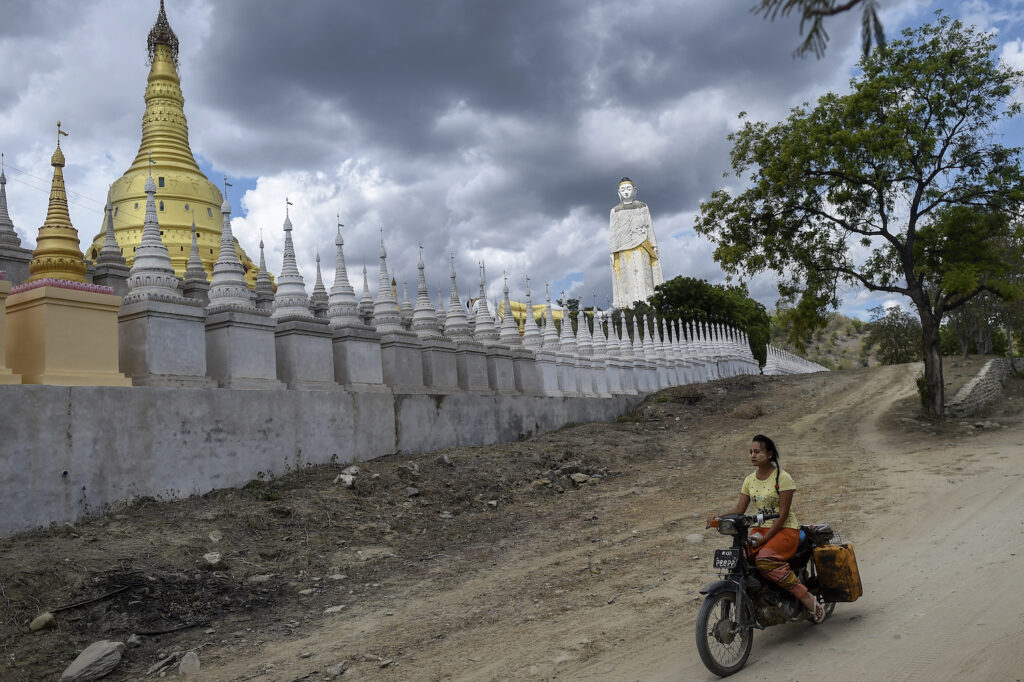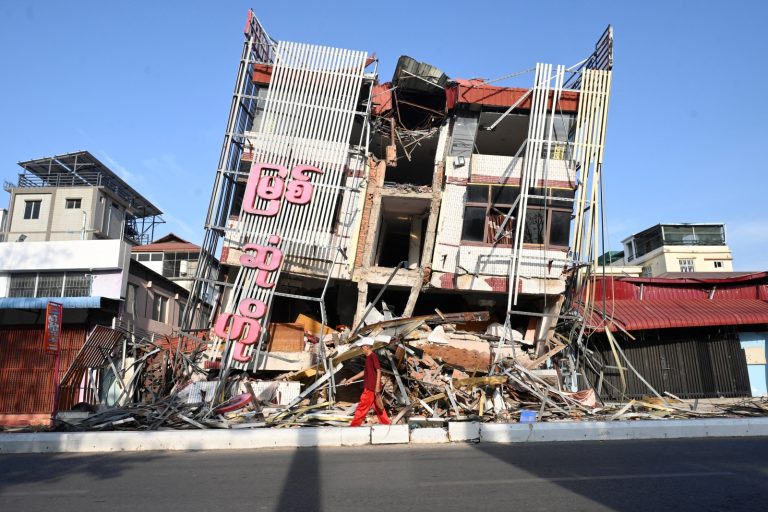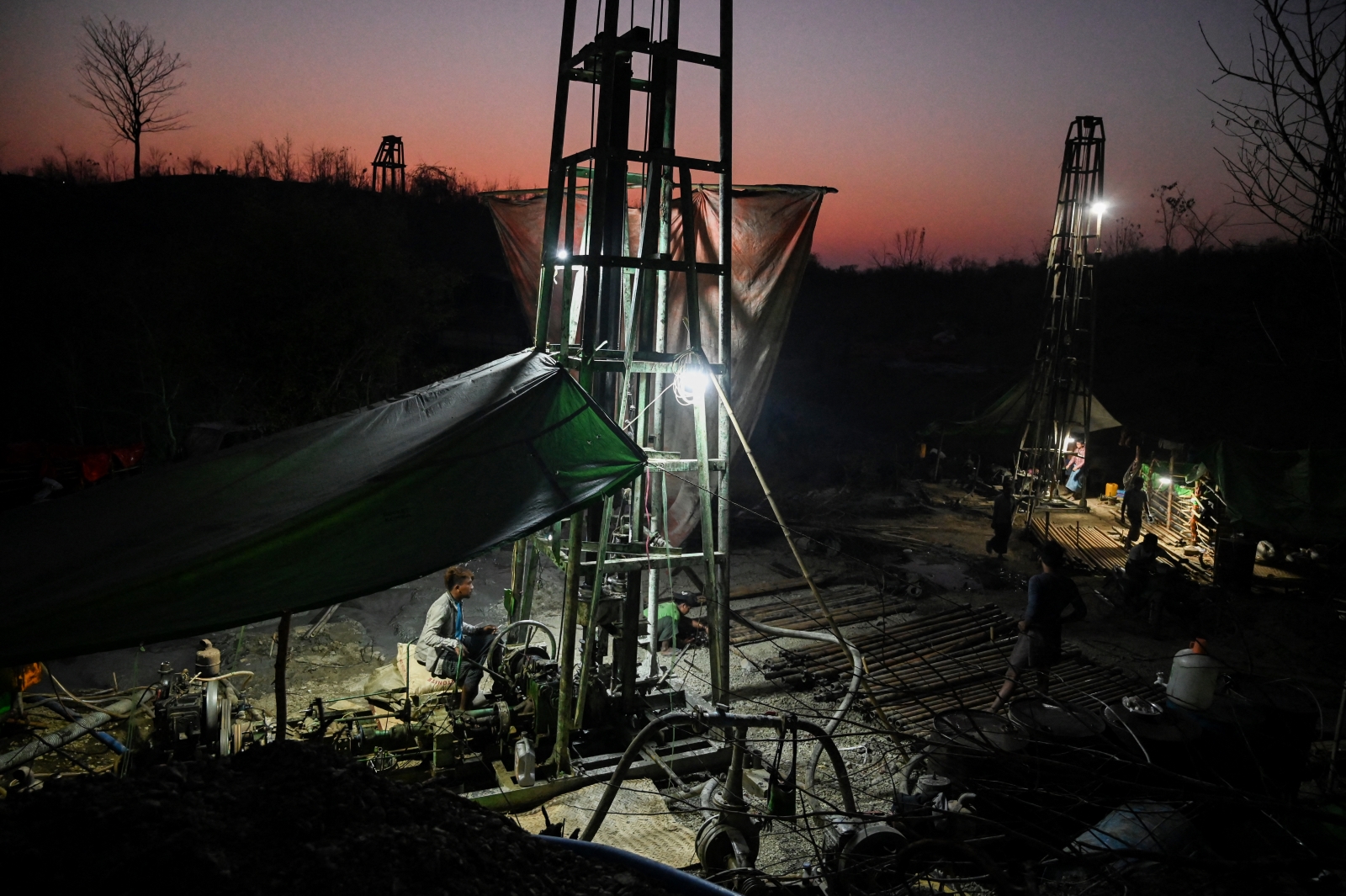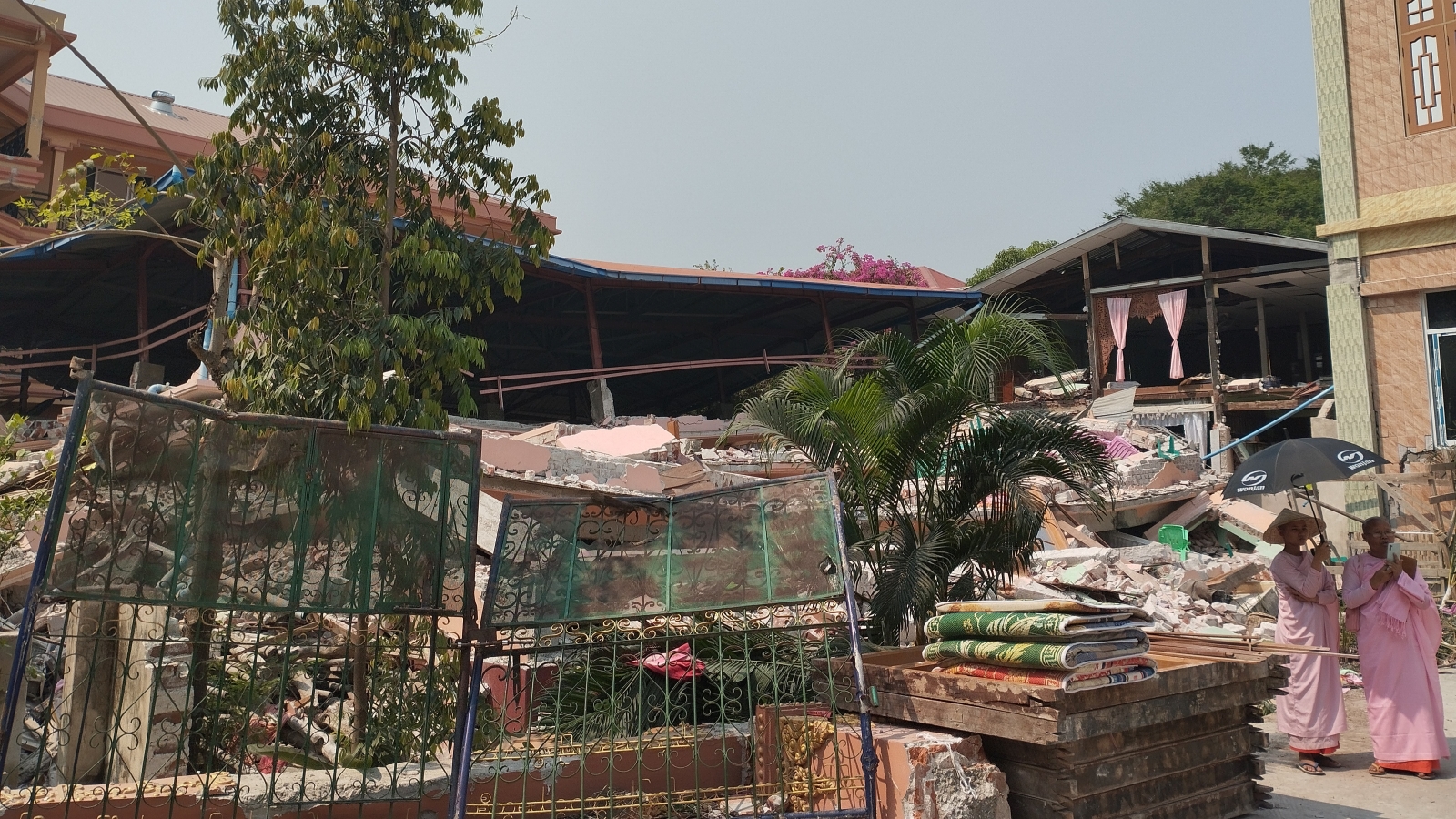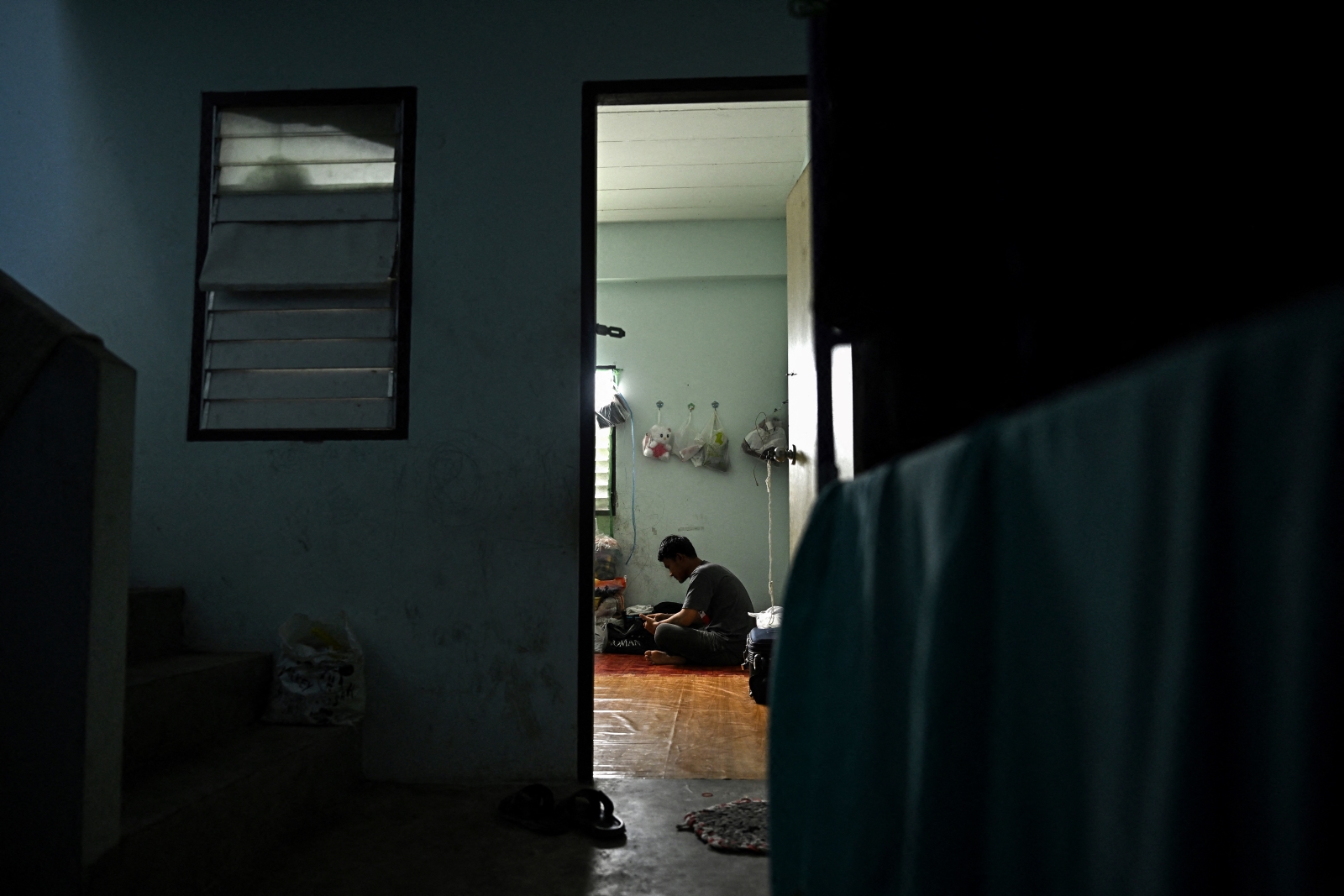The coup has led to a proliferation of armed groups across central Myanmar – some of which have converted to a life of crime – leaving NUG-affiliated resistance outfits scrambling to combat a spate of kidnappings and robberies.
By FRONTIER
When a 25-year-old pregnant woman was shot and killed during a botched robbery by a resistance-turned-criminal group in Monywa, it was the last straw for U Tun Thu*.
“I’m too afraid to face these robberies and kidnappings,” said the wealthy merchant, who moved to Mandalay city after the incident. He had been watching anxiously as a campaign of kidnappings that was originally aimed at military families became increasingly indiscriminate.
“I only have one life,” Tun Thu said.
Monywa is the capital of Sagaing Region and its location on the eastern bank of the Chindwin River, and along the Mandalay-Kalay highway, has made it a prosperous trade hub.
In the surrounding countryside, people produce beans, sesame, wheat and traditional cotton fabrics, while many city residents, like Tun Thu, make a living selling these goods to India in the north-west or to other parts of Myanmar.
When conflict first came to Monywa in 2021, most residents said they had little to fear.
“There were frequent explosions and shootings, but I wasn’t afraid then because [resistance groups] only targeted military troops,” said Tun Thu, who had been selling tobacco and betel to India for around 30 years.
“But these days, living in the city has become scarier.”
After the 2021 coup, the military responded to mass peaceful protests with brutal crackdowns. This led many to take up arms against the new regime, with the Sagaing countryside emerging as a key area of resistance.
Anti-junta armed groups continue to enjoy widespread popular support, but there is growing concern over their alleged involvement in violent crime including sexual assault as well as in illegal logging and gambling operations.
The Sagaing resistance has also been riven by divisions, with some groups pledging loyalty to the National Unity Government, a parallel administration appointed by lawmakers deposed in the coup, while others remain fiercely independent.
In some cases, locals have accused NUG-affiliated groups – known as People’s Defence Forces and People’s Defence Teams – of abusing their authority to commit crimes with impunity. In other incidents, NUG armed groups have tried to crack down on illegal activity by independent armed groups.
Over the past year, there have been increasing reports of these independent groups kidnapping people for ransom.
On August 5, U Maung Maung, the owner of an eyeglasses shop in central Monywa, was detained by a group of armed men. Rumours circulated that he was a supporter of the military regime, but no hard evidence was shared to substantiate this.
“The next day, the group demanded K70 million [over US$33,000] from his family. When they paid the money to them on August 7, he was released that same day,” said Tun Thu, who knows Maung Maung’s family.
Later that month, the Monywa PDT, under NUG command, announced that it had arrested four suspects involved in the kidnapping, including a member of the Monywa-Amyint strike committee, an activist group. NUG forces also arrested seven people involved in the killing of the pregnant woman, who belonged to a group known as Monywa Force that had reportedly abandoned the fight against the junta to pursue crime.
“We hear about kidnapping cases around every two weeks,” claimed Tun Thu.
Ma Khin Lay*, a former government high school teacher who joined the mass strike known as the Civil Disobedience Movement, said most people who can afford to move are leaving Monywa.
“Many people living in the city are very afraid. Most of the rich people have moved to other cities.”
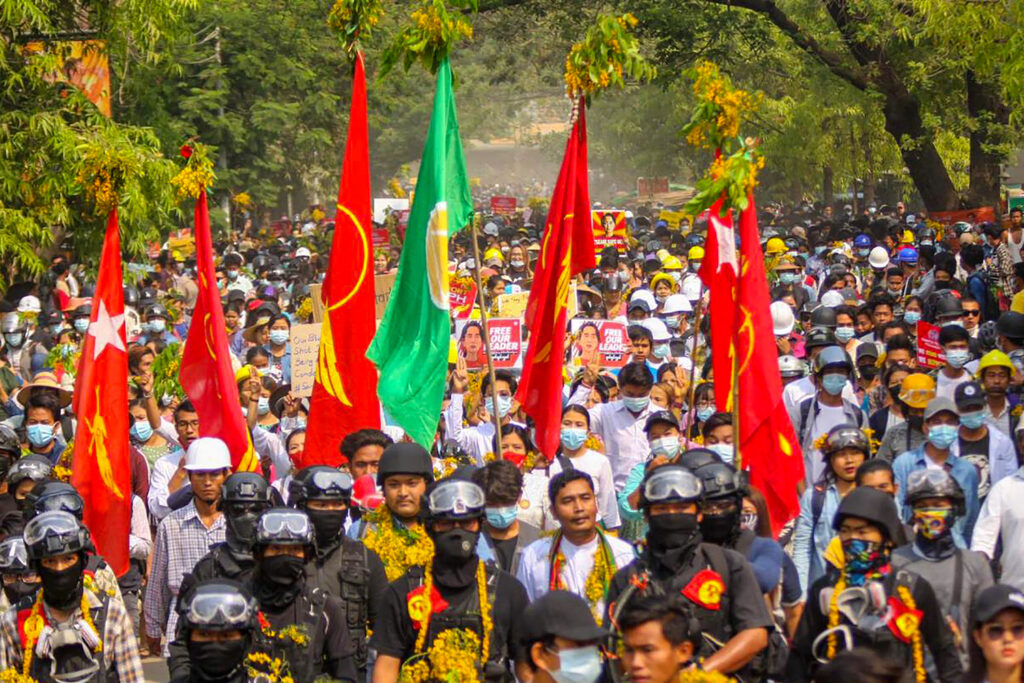
Expanding the target
According to Frontier interviews with PDF members, activists and ordinary civilians, kidnapping cases have also become routine in Pakokku and Myaing, towns in neighbouring Magway Region.
At first, sources say the kidnapping campaigns primarily targeted members of the military or their families.
In one early high-profile incident, caught on CCTV, three armed assailants kidnapped the wife of a military officer in Pakokku town in November last year. But just one day later, the regime announced she had been rescued by an army commando unit.
“They wanted to ransom the woman for K1 billion but they didn’t have any luck,” said Ko Thurein Aung*, a PDF official in neighbouring Myaing Township.
Fearing the situation could spiral out of control, 10 resistance groups based in Pakokku Township signed a pledge not to commit robberies or kidnappings, even of military supporters. The agreement included groups under the NUG such as the Pakokku PDF as well as independent groups.
But despite this, Thurein Aung said kidnappings have continued.
“There have been at least 10 kidnapping cases this year,” he said of Pakokku, claiming most of the perpetrators are small, independent resistance groups with 10-15 members.
Thurein Aung said that in May, one such group even arrested a local merchant who was a well-known NUG supporter, prompting the PDF to intervene.
“They arrested him and demanded a K3 million ransom,” he said. “The PDF troops found them and surrounded them and demanded his release. The PDF said, if you don’t release him, we will shoot all of you. So, they released him.”
Tint Lwin*, a Pakokku-based merchant who said he supports the NUG, agreed that increasingly, even pro-democracy businessmen are at risk.
“We feel if you’re wealthy, you’ll get kidnapped or robbed,” he said.
Tun Thu in Monywa said even if resistance groups still primarily target military supporters, some innocent people will inevitably be caught in the net.
“If the military orders us to give them something, we have to give it to them. We can’t refuse, or we will be arrested,” he said. “And we can’t publicly say that we support revolutionary groups. So, people might think we don’t support the PDFs, and then we could get abducted by them.”
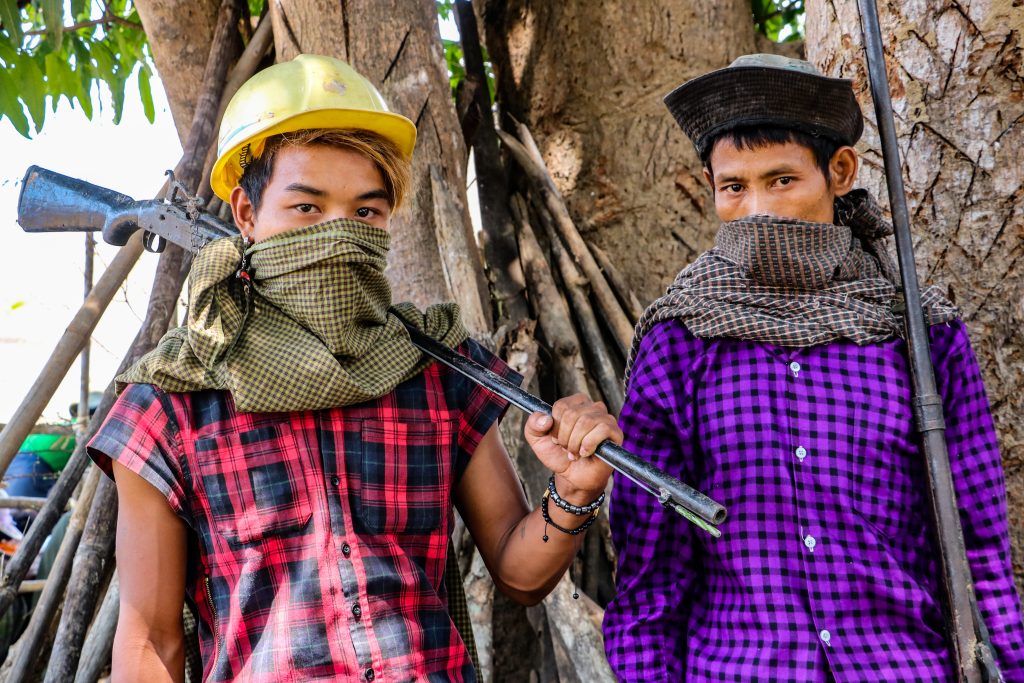
A threat to the revolution
Thurein Aung explained that many of the rogue armed groups behind kidnappings started out as genuine pro-democracy outfits. They typically turn to crime to secure desperately needed funds to buy weapons and other supplies to fight the military, he said, but over time the illegal proceeds can make them lose sight of what they are fighting for.
“If you can’t get a gun, you can’t do anything,” said Thurein Aung. “The NUG pays K8 million per month to each PDF battalion, but you can’t even buy one gun with that money. So many revolutionary groups need to find money their own way.”
But activist Ma Tharaphi* in Sagaing’s Chaung-U Township, south of Monywa, said this is no excuse.
“This is criminal,” she said. “Some people said we should forgive them because they are fighting the military, but I can’t accept that.”
Ma Tharaphi leads a group that organises anti-junta protests and supports alternative education programmes for those boycotting regime-run schools.
“Some of them took up weapons when other people started to revolt against the military, but they have no revolutionary spirit. Now that they’re facing tight times, they’re resorting to violent crime,” she said.
Sagaing-based student union member Ma Khine Zin* agreed, and said this practice was short-sighted. She argued that while kidnappings could temporarily increase resistance groups’ budgets, they could do permanent damage to their reputations.
“The NUG needs to understand the situation on the ground and resolve it quickly. If they don’t, the public will distrust the revolutionary groups,” she said.
However, this isn’t the first time armed groups fighting for sympathetic causes have resorted to this brand of criminal activity.
Before the coup, the Ta’ang National Liberation Army came under criticism for a campaign of kidnappings in Mandalay Region’s Mogok Township, while trying to fund its fight for autonomy for the marginalised Ta’ang ethnic group.
On the other side, pro-military militias are behaving similarly today.
“Now we see frequent kidnapping cases by militias in Muse and parts of Lashio Township,” said Ko Aung Lin*, a member of a civil society organisation in northern Shan State.
Meanwhile in Sagaing, Ma Tharaphi said the military and its allied militias are effectively taking people hostage to secure pay-outs.
“The military arrests many people who aren’t guilty of anything. Then their family needs to pay money to free them. That’s the same as kidnapping,” she said.
Tun Thu agreed, saying he knew of one incident where a wealthy Monywa resident was arrested by the regime and accused of being connected to a PDF without evidence, then released after paying a K3 million bribe.
Thurein Aung said this parallel reflects badly on the resistance. The spate of kidnappings could sully the movement’s reputation, he said, even if it’s mostly smaller independent groups engaged in it.
“If not addressed, these problems will only grow. Eventually, people might see the military and the resistance as the same thing, and support for the revolution could decrease,” he said. “If the people don’t support the revolution, nothing can be done.”
* indicates the use of a pseudonym for security reasons


